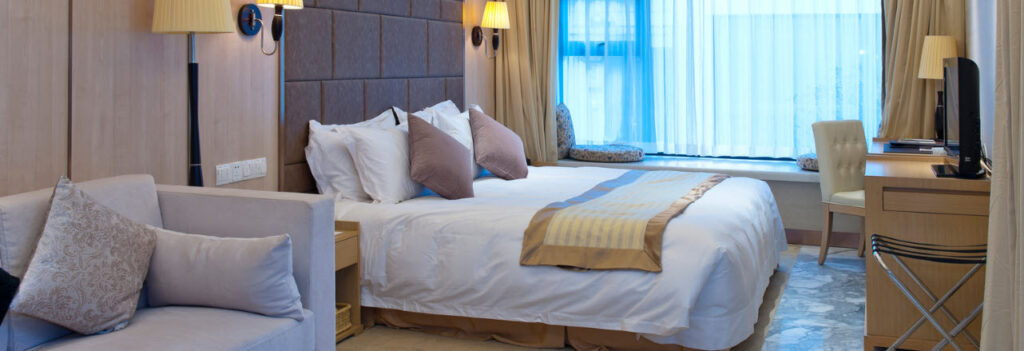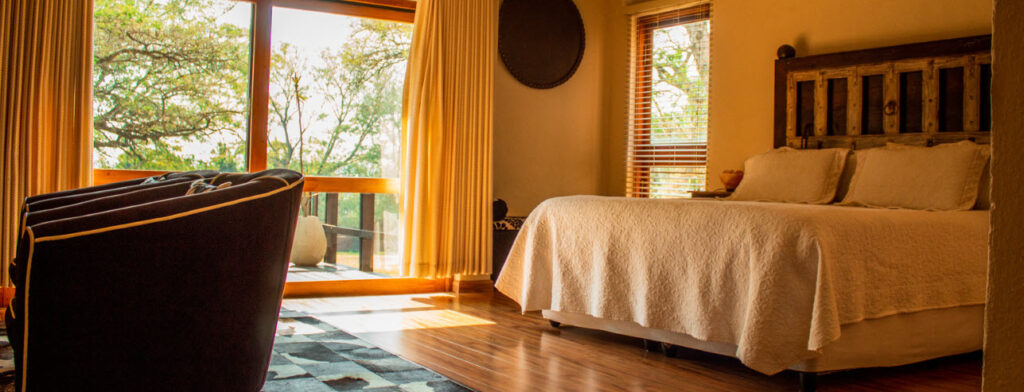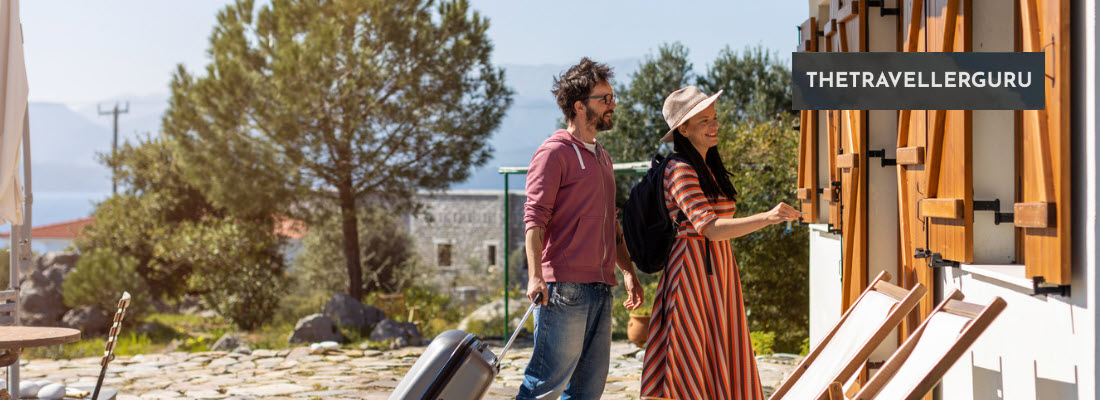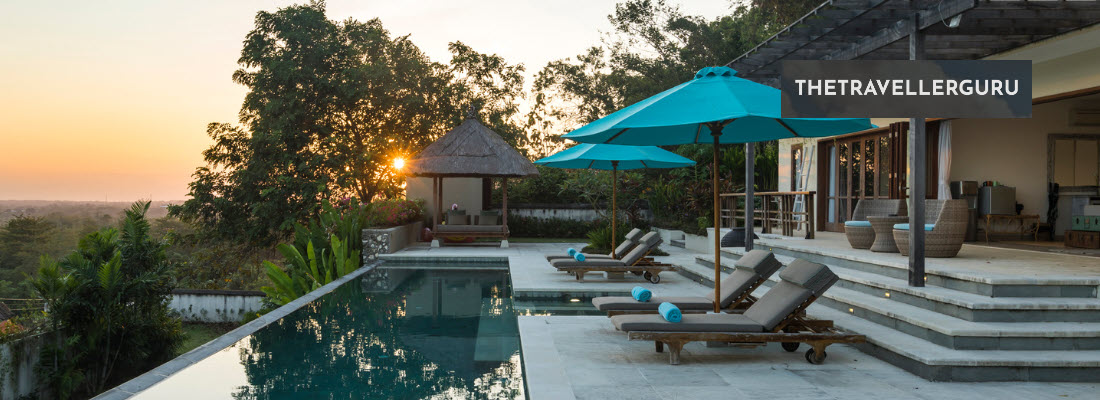Hey there travel enthusiasts and welcome to my post where I we will check out my views on whether you should stay in a hotel or AirBNB. Traveling has always been a great way to take a break from the daily grind and explore new places and the Hotel vs Airbnb argument as often at the forefront.
Hotels are the traditional option for accommodation, providing guests with a range of amenities and services. Airbnb, on the other hand, offers a more unique and personalized experience, allowing travelers to stay in a local’s home or apartment.
Hotel Vs Airbnb
Choosing between hotels and Airbnb can be a difficult decision, as each option has its own set of pros and cons. Let’s then explore the advantages and disadvantages of staying in a hotel versus an Airbnb.
Hotels Pros and Cons
Pros of hotels:
- Convenience – Hotels are typically located in central areas, making it easy to access local attractions, restaurants, and shops.
- Amenities – Hotels offer a range of amenities such as room service, housekeeping, swimming pools, fitness centers and concierge services.
- Safety – Hotels usually have security measures in place such as surveillance cameras and staff monitoring, which can make travelers feel safe and secure.
- Consistency – Hotels generally have standardized rooms and services, which can be reassuring to travelers who value predictability and reliability.
- Loyalty programs – Many hotels offer loyalty programs that allow guests to earn points, receive discounts and enjoy other perks.
Cons of hotels:
- Cost – Hotels can be expensive, especially in popular tourist destinations or during peak seasons.
- Lack of personalization – Hotels can feel impersonal, with little to no connection to the local community or culture.
- Limited space – Hotel rooms can be small and cramped, especially in urban areas where space is at a premium.
- Noise – Hotels can be noisy, with thin walls and guests coming and going at all hours of the day and night.
- Overcrowding – During peak seasons, hotels can be crowded and busy, making it difficult to find a quiet space to relax.

Check out my post: Hotel Vs Villa
Airbnb Pros and Cons
Pros of Airbnb:
- Affordability – Airbnb can be a more affordable option compared to hotels, especially for larger groups or longer stays.
- Personalization – Airbnb offers a more personalized experience allowing travelers to stay in a local’s home or apartment and immerse themselves in the local community and culture.
- Space – Airbnb listings can be more spacious and have a homier feel compared to hotel rooms.
- Flexibility – Airbnb offers more flexibility when it comes to check-in and check-out times, as well as the ability to cook meals and do laundry.
- Variety – Airbnb offers a wide variety of unique and unconventional accommodations such as treehouses, houseboats and yurts etc.
Cons of Airbnb:
- Safety – While Airbnb hosts are required to go through a verification process, there is still a risk of scams or unsafe accommodations. It’s important to do thorough research before booking an Airbnb stay.
- Inconsistency – The quality and amenities of Airbnb listings can vary widely, which can make it difficult to know what to expect.
- Lack of services – Unlike hotels, Airbnb listings do not typically offer services such as room service, housekeeping or concierge services.
- Additional fees – Airbnb listings may have additional fees such as cleaning fees or service fees, which can add up and make the overall cost more expensive than anticipated.
- Legal issues – In some cities, Airbnb may not be legal or may be subject to strict regulations, which can make it difficult to find a suitable and legal listing.

Check out these: 8 Accommodation Types for Travel
Hotels vs Airbnb: Detailed Comparison
Ok, let’s break all of this down a little:
Pricing
When it comes to price, there are several factors to consider when comparing hotels and Airbnb. In general, Airbnb properties tend to be cheaper than hotels, but this can vary depending on the destination, time of year, and the type of property.
Hotels typically have more standardized pricing, with rates based on room type, amenities and location and may also offer seasonal rates, which can fluctuate based on demand. On the other hand, Airbnb prices are set by individual property owners and can vary widely based on location, property type and amenities.
In terms of affordability, Airbnb can be a great option for budget-conscious travelers as many Airbnb properties are priced lower than comparable hotel rooms, especially in popular destinations where hotel prices can be high. Additionally, Airbnb properties often come with amenities such as kitchens and laundry facilities, which can save travelers money on dining out and laundry services.
However, it’s important to note that Airbnb pricing can be less transparent than hotel pricing. While hotels typically include taxes and fees in their advertised rates, Airbnb properties may have additional fees such as cleaning fees or service fees. These fees can add up quickly and may not be immediately apparent when browsing properties.
Lastly, it’s important to consider the value proposition of each option. While Airbnb properties may be cheaper than hotels on a per-night basis, they may not offer the same level of amenities and services as a hotel. For example, hotels typically offer housekeeping services, 24-hour reception and a variety of dining options, while Airbnb properties may not offer these services.
Safety
Generally, hotels have better safety features and infrastructure in place than individual Airbnb properties. This is because hotels have to adhere to safety regulations and guidelines and often have staff who are trained in emergency procedures and security. Hotels typically have 24-hour front desk service as well, so guests can report any safety concerns or issues immediately.
Also, many hotels have security measures in place such as CCTV cameras, security guards and keycard access to guest rooms and common areas. In case of an emergency, hotels often have emergency plans and procedures in place to evacuate guests safely.
On the other hand, Airbnb offers several safety features, such as verified profiles, reviews and ratings of both hosts and guests. This can help guests make more informed decisions about where to stay. Many also have safety features in place, such as smoke detectors, fire extinguishers and first aid kits.
With Airbnb however, there is a not usually someone on site to offer immediate assistance should an emergency arise.

Check out these: Tips for Choosing AirBNB Accommodation
Amenities
As we have discussed, Hotels and Airbnb accommodations are two popular options for travelers seeking a place to stay while away from home. One of the key differences between the two however is the amenities that they offer to guests.
Hotels generally have a wider range of amenities compared to Airbnb listings as hotels are designed to provide a more comprehensive experience to guests. For instance, most hotels have restaurants, cafes and bars within the premises, which are not typically available in Airbnb accommodations.
In addition to food and beverage options, hotels also offer various recreational facilities such as swimming pools, gyms, spas and sauna rooms among others. These facilities are often available to guests for free or at an additional cost. The convenience of having these amenities and services readily available is one of the main reasons why many travelers prefer staying in hotels over Airbnb accommodations.
On the other hand, Airbnb listings usually provide guests with a more personalized and homely experience. Airbnb hosts often live in the same property as their guests, and they are typically more willing to provide guests with insider information about the local area including places to visit, eat and shop.
Airbnb listings also tend to be more spacious than hotel rooms which can be ideal for families or groups of friends traveling together. Additionally, many Airbnb listings provide guests with access to a kitchen which can also be a great way to save money on meals and snacks during their stay.
Additionally, Airbnb listings may have some unique features that are not typically found in hotels. For instance, some listings may have access to private gardens, terraces or balconies which can provide guests with a more intimate and peaceful atmosphere. Others may offer recreational activities such as board games, books or bicycles for guests to use during their stay. Oh, and some do have pools as well.
Privacy
Privacy is an important factor to consider when choosing between hotels and Airbnb accommodations. Again, hotels generally offer a more standardized level of privacy as guests are usually given a private room or suite, which they can lock and access using a key card or traditional key.
Housekeeping staff may come in to clean the room and change the bed linens during the day, but guests can usually request that they not enter their room if they prefer to maintain their privacy.
In contrast, Airbnb accommodations often offer a more personalized level of privacy. Guests typically have access to the entire property which can include bedrooms, bathrooms, kitchens and living areas. This can provide a more homely and intimate experience for guests who prefer a more private and comfortable space.
However, because guests are usually renting a private home or apartment, there may be limited security measures in place. Guests may need to rely on the security measures provided by the host, such as door locks and alarm systems.
One of the potential downsides of Airbnb accommodations is that guests may have limited control over their privacy. Because they are renting someone else’s property, they may not have control over who has access to the property during their stay.

Length of Stay
Hotels and Airbnb accommodations also differ in terms of the length of stay that they are designed to accommodate. Hotels are generally designed to cater to short-term stays, typically ranging from a few days to a week or two. Most hotels offer nightly rates and guests are required to check out at a specific time on the day of departure.
This makes hotels ideal for travelers who are staying in a destination for a short period, such as business travelers, tourists, or those attending events or conferences.
In contrast, Airbnb accommodations are designed to cater to both short-term and long-term stays. Many Airbnb hosts offer weekly and monthly rates, making them an attractive option for travelers who are planning to stay in a destination for an extended period, such as a few weeks or even months. T
his can be particularly useful for those who are relocating to a new city or country, or for digital nomads who work remotely and require a comfortable home away from home. Additionally, Airbnb accommodations often provide guests with more flexibility when it comes to check-in and check-out times.
Unlike hotels, where guests are required to check out by a specific time, Airbnb hosts may allow guests to check out later in the day if the property is not booked for the next day. This can be a convenient option for travelers who have late flights or transportation arrangements.
However, it’s worth noting that some Airbnb hosts may have a minimum stay requirement, which can range from a few days to a week or more. This can be a disadvantage for travelers who are looking for short-term accommodation options.
So, where Should I Stay?
So, which option is better for your trip? Now, for fear of being accused of sitting on the fence here – the answer largely depends on your individual preferences and the nature of your journey. Here are some recommendations to help you decide:
Choose a Hotel If:
- You value consistency and a known standard of service.
- Amenities like on-site dining, room service, and housekeeping are essential to your travel experience.
- You prioritize security and appreciate round-the-clock assistance.
- Privacy is a top concern, and you prefer a traditional hotel setting.
Choose an Airbnb If:
- You seek unique and personalized accommodations that reflect the local culture.
- You require more space, privacy, or are traveling with a group.
- You enjoy the freedom to cook your meals or want to experience local cuisine by shopping at nearby markets.
- Flexibility in check-in, check-out, and cancellation policies is crucial.
- You’re looking for a cost-effective option for an extended stay.
Ultimately, there is no one-size-fits-all answer to the “hotel vs. Airbnb” debate. Your choice should align with your travel goals, budget, and personal preferences. Remember to read reviews, carefully examine property listings and consider the specific factors that matter most to you when making your decision.

FAQs
Is it safer to stay in a hotel or an Airbnb?
Both hotels and Airbnb can be safe options, but it’s important to do your research beforehand. Hotels often have security measures in place, such as surveillance cameras and staff monitoring, while Airbnb hosts are required to go through a verification process and may have guest reviews that can give you an idea of the safety of their property. Always check the safety features of the accommodation you’re considering and trust your gut instincts.
Are hotels more comfortable than Airbnb?
Hotels generally offer more amenities and services, such as room service and housekeeping, which can make them more comfortable for some travelers. However, Airbnb can offer a more personalized and unique experience, which can also be comfortable for those who prefer a homier feel.
Conclusion
And there it is, everything you need to know as you look to choose between villa vs Airbnb. Of course, I would love to hear your thoughts on the subject below.
Oh, and in case you are wondering, I love a good Airbnb if I am not in a city environment so I can relax and come and go as I please. If I am in a busy area such as a big city or major tourist area, then for pure convenience it is a hotel room all the way!
Also, please do not hesitate to comment below if you have any questions, concerns, or corrections, or would like me to check anything else out for you.
Until next time.
Have fun
Paul






